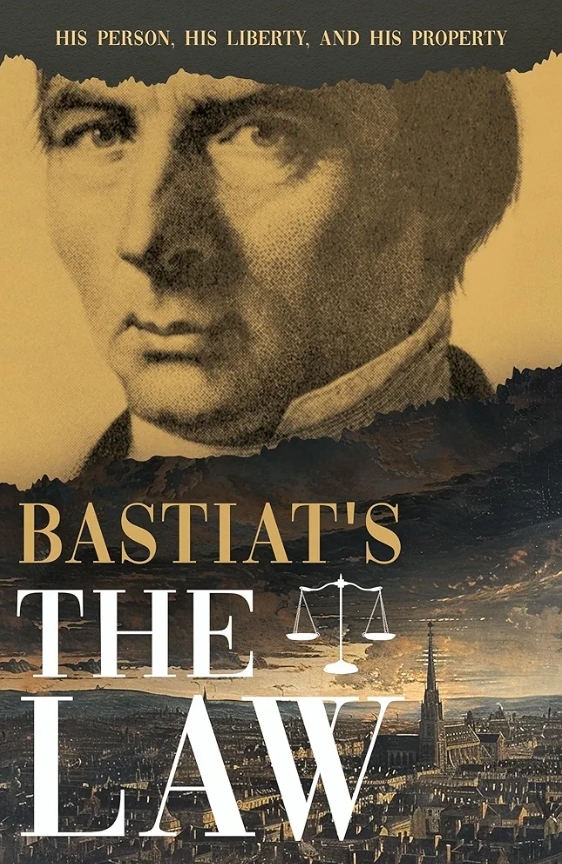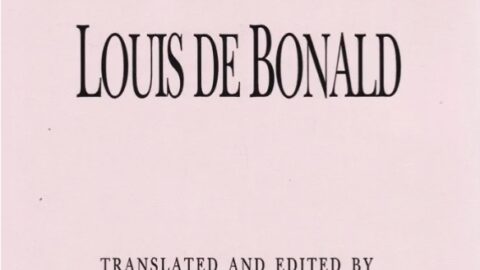“The Law” by Frédéric Bastiat, first published in 1850, is a classic political essay that critiques government intervention and argues for individual liberty, private property, and limited government. Bastiat, a French economist and political philosopher, wrote this work shortly after the French Revolution of 1848, during a period of significant political upheaval and debate about the proper role of the state in society.
Key Themes and Arguments in the Book:
- Definition of the Law:
- Bastiat defines law as the collective organization of the individual right to lawful defense. He argues that the law’s primary purpose is to protect the rights of individuals to their lives, liberties, and property. According to him, the law should act as a defensive force, protecting individuals from injustice, rather than as an instrument of force used by the state to achieve other objectives.
- Critique of Legal Plunder:
- One of the central concepts in Bastiat’s work is “legal plunder.” He argues that when the law is used to take property from one person and give it to another, it becomes an instrument of plunder. This occurs when the government enacts laws that redistribute wealth, interfere in the free market, or favor certain groups over others.
- Bastiat condemns legal plunder in all its forms, whether it is enacted for supposedly noble purposes (like social welfare) or for the benefit of special interests. He believes that any such intervention corrupts the law and leads to further injustice and social conflict.
- The Proper Role of Government:
- Bastiat argues for a limited government whose role is strictly confined to protecting individuals’ rights to life, liberty, and property. He is critical of any government action that goes beyond these boundaries, viewing it as a violation of individual freedom.
- He warns that when the government expands its role beyond protection, it inevitably becomes a tool of oppression and exploitation, leading to tyranny. For Bastiat, a government that tries to regulate or control the economy, redistribute wealth, or impose social programs is exceeding its legitimate function.
- The Dangers of Socialism:
- Bastiat specifically critiques socialist theories and policies, which he views as forms of legal plunder. He argues that socialism, in seeking to use the state to equalize wealth or provide for individuals’ needs, undermines personal responsibility and freedom.
- He contends that socialism corrupts both those who receive its benefits and those who must pay for them. By redistributing wealth through force, the government undermines individual initiative, productivity, and the moral foundation of society.
- Natural Rights and Justice:
- Bastiat emphasizes the concept of natural rights—life, liberty, and property—as fundamental and inherent to human existence. He argues that these rights are not granted by the government but exist prior to it. The government’s only legitimate purpose is to protect these natural rights.
- Justice, according to Bastiat, means respecting these natural rights and ensuring that the law does not become a tool for violating them. When the law itself becomes a source of injustice through legal plunder, it perverts its true purpose and creates social unrest.
- Consequences of Bad Legislation:
- Bastiat believes that when the law is perverted, it has several negative consequences: it fosters resentment among citizens, creates social divisions, encourages further injustice, and leads to moral decay.
- He argues that individuals will eventually become dependent on government handouts or favors, leading to a loss of personal responsibility and initiative. This dependence, in turn, creates a vicious cycle of ever-increasing government control and loss of individual freedom.
- The Fallacy of Governmental Philanthropy:
- Bastiat challenges the notion that the government can be a philanthropic force, arguing that the state can only give what it has first taken from someone else. He asserts that true charity and welfare are private endeavors that should be conducted by individuals or voluntary associations, not through coercive state action.
“The Law” by Frédéric Bastiat is a passionate defense of individual liberty, private property, and limited government. It critiques the expansion of government power, particularly in the form of redistributive policies, which Bastiat sees as a violation of natural rights and a form of legalized theft. The book argues for a minimalist state that confines itself to the protection of these rights, warning against the dangers of socialism, legal plunder, and government overreach.
Legacy and Influence:
- Influence on Libertarian Thought: “The Law” has become a foundational text for libertarians, classical liberals, and advocates of free-market economics. Its clear and concise arguments continue to resonate with those who believe in limited government and individual rights.
- Critique of Statism: Bastiat’s work serves as a critique of all forms of statism, where the government becomes too powerful, regardless of whether that power is exercised in the name of welfare, equality, or security.
- Continued Relevance: The themes of “The Law” remain relevant in contemporary debates about the role of government, economic policy, social justice, and individual freedom. The book encourages readers to critically evaluate whether laws promote justice or perpetuate injustice.
Overall, “The Law” is a powerful and enduring argument for freedom, personal responsibility, and the limitation of state power, challenging readers to consider the fundamental purposes of government and the principles upon which a just society should be based.







